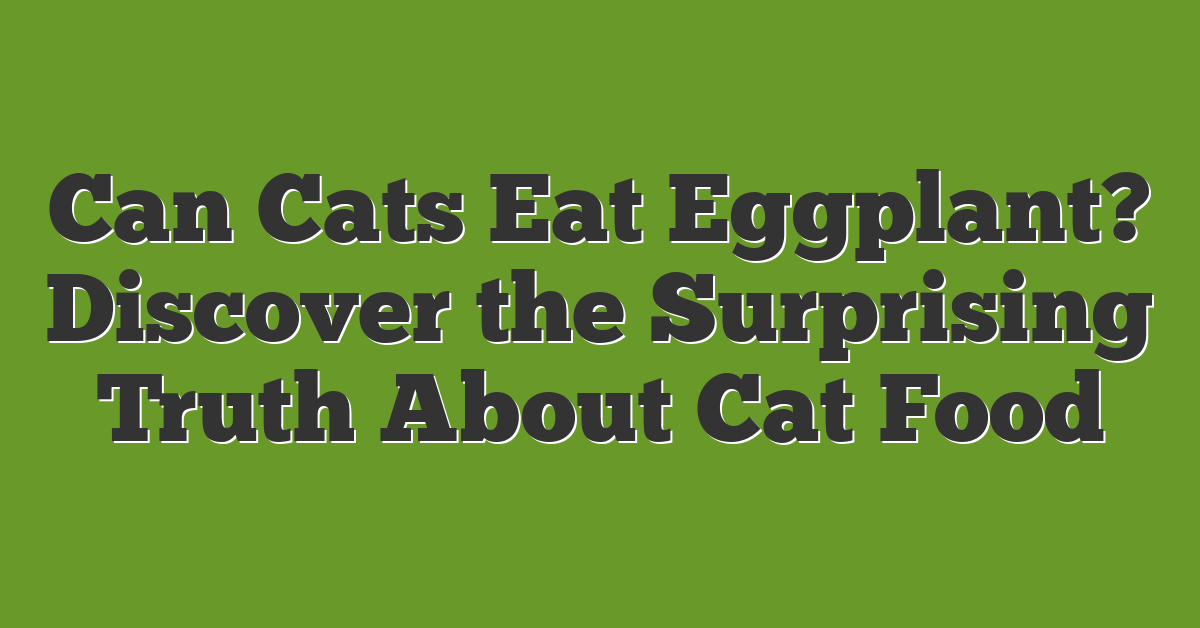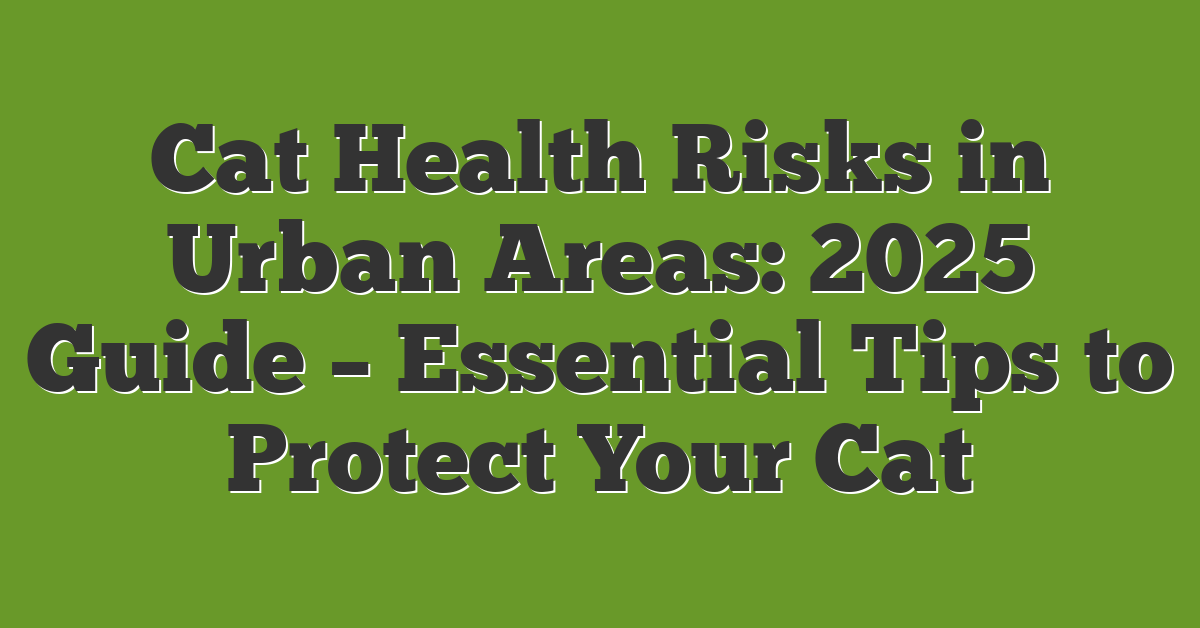What is eggplant?
You may have heard about eggplant, also known as aubergine, but do you know what it actually is? Eggplant is a vegetable that is often used in various cuisines around the world. It belongs to the nightshade family, just like tomatoes and potatoes.
Its unique shape and vibrant purple color make eggplant quite intriguing. When ripe, it has a smooth and shiny skin, which is almost like holding a little work of art in your hands. While the inside is soft and creamy, with tiny seeds spread throughout its fleshy interior.
Eggplant has a mild, slightly bitter taste, which can vary depending on the variety and how it’s prepared. Some people describe it as having a meaty texture, making it a popular ingredient in vegetarian dishes and even as a substitute for meat.
Can cats eat eggplant?
As a cat lover, you may have found yourself wondering whether your feline friend can enjoy a bite of eggplant. It’s important to consider their well-being and provide them with safe and appropriate food options. So, let’s dive into the question – can cats eat eggplant?
The answer is both yes and no. While eggplant is not toxic to cats, it’s not an ideal part of their regular diet. Cats are obligate carnivores, which means their bodies are designed to primarily eat meat. Their digestive system is not equipped to handle plant-based foods like eggplant as efficiently.
Here are a few key points to keep in mind:
- Nutritional value: Eggplant is low in calories and fat, which might seem beneficial. However, cats require essential amino acids and nutrients that are abundantly found in animal proteins, such as in their regular cat food. Eggplant simply doesn’t provide the complete nutritional profile that cats need.
- Digestive challenges: Cats lack the necessary enzymes to efficiently break down plant-based food. This means that eggplant may be hard for them to digest, leading to potential digestive issues like upset stomach, vomiting, or diarrhea.
- Bitter taste: Eggplant has a mild, slightly bitter taste. Cats have a highly sensitive sense of taste, and they may not appreciate the flavor of eggplant. It’s always best to offer them food that they enjoy and are accustomed to.
If your cat ingests a small amount of cooked or boiled eggplant, they are likely to be fine. However, it is crucial to avoid feeding them raw or uncooked eggplant. The skin and leaves of eggplant contain solanine, which can be toxic to cats.
Always remember, when it comes to your cat’s diet, it’s essential to consult with your veterinarian. They can provide expert guidance tailored to your cat’s specific needs and ensure they receive a balanced and nutritious diet.
It is best to stick to cat food that is specially formulated to meet your feline friend’s dietary requirements. While a little nibble of eggplant is unlikely to harm them, it’s not something you should make a regular part of their menu. Keep your furry friend healthy and happy by providing them with a balanced and cat-friendly diet.
Nutritional value of eggplant
Eggplant may be a tasty vegetable for humans, but when it comes to cats, it’s important to understand their specific dietary needs. As a cat lover, you want to ensure that your feline friend gets the right nutrients to thrive. Let’s take a closer look at the nutritional value of eggplant and how it fits into a cat’s diet.
1. Low in Essential Nutrients
While eggplant is not toxic to cats, it lacks the essential nutrients that cats need for optimal health. Cats are obligate carnivores, which means their bodies are designed for a diet consisting primarily of animal-based proteins. They require specific nutrients that can only be found in meat such as taurine, Vitamin A, and arachidonic acid. These nutrients are crucial for their overall well-being, including proper eye and heart function.
2. Limited Amino Acids
Eggplant also falls short when it comes to providing cats with the necessary amino acids for growth and maintenance. Amino acids are the building blocks of proteins and are crucial for muscle development and repair. While eggplant does contain some protein, it doesn’t offer a complete amino acid profile that cats require. This is why it’s essential to feed them high-quality, meat-based cat food that meets their specific nutritional needs.
3. Potential Digestive Issues
Introducing eggplant into a cat’s diet may also lead to digestive issues. Cats have a sensitive digestive system, and plant-based foods like eggplant can be difficult for them to digest. This could result in upset stomach, diarrhea, or even vomiting. To avoid any discomfort for your feline friend, it’s best to stick to a diet that is formulated to meet their natural dietary requirements.
Remember, as a cat expert, I always recommend consulting with a veterinarian before introducing any new food into your cat’s diet. They are the best resource for understanding your cat’s unique needs and providing tailored dietary recommendations. When it comes to satisfying your cat’s nutritional requirements, it’s safer and more effective to rely on specially formulated cat food that can meet all their dietary needs without any potential risks.
By making informed choices about what you feed your cat, you ensure they receive the essential nutrients they need to thrive and lead a happy, healthy life.
Potential risks of feeding eggplant to cats
As a cat lover, you want the best for your furry friend. And that includes making sure they have a safe and healthy diet. While it’s important to vary your cat’s diet with different foods, it’s crucial to be aware of any potential risks. When it comes to eggplant, there are a few things you should know.
Digestive Issues: Cats have specific dietary needs, and unfortunately, eggplant doesn’t meet them. Feeding your cat eggplant can lead to digestive issues like upset stomach, vomiting, or diarrhea. This is because eggplant lacks the essential nutrients and amino acids that cats require for optimum health.
Potential Allergies: Just like humans, cats can develop allergies to certain foods. While it’s rare, your cat may have an allergic reaction to eggplant. Signs of an allergic reaction can include itching, redness, sneezing, or difficulty breathing. If you notice any of these symptoms after feeding your cat eggplant, it’s best to consult with your veterinarian.
Toxicity Concerns: Unlike some other foods that can be toxic to cats, such as onions or garlic, eggplant itself is not toxic. However, it’s important to note that not all parts of the eggplant plant are safe for cats. The leaves and stems of the plant contain solanine, a toxic substance that can be harmful to cats if ingested in large quantities. To be safe, it’s best to keep your cat away from the plant itself.
While eggplant may seem like a harmless vegetable, it’s not an ideal food choice for your feline friend. To ensure your cat’s health and well-being, it’s always best to consult with your veterinarian about their specific dietary needs. Stick to specially formulated cat food that provides all the essential nutrients your cat needs for a long and happy life.
Keep reading to learn about suitable alternatives for your cat’s diet.
Safe alternatives to eggplant for cats
If you’re wondering whether cats can eat eggplant, it’s best to err on the side of caution. While eggplant itself is not toxic to cats, it doesn’t meet their specific dietary needs. Feeding your furry friend eggplant can lead to digestive issues and possibly even allergies.
But don’t worry! There are plenty of safe alternatives to eggplant that you can offer your feline companion. These alternatives will not only satisfy their taste buds but also provide them with the necessary nutrients they need to stay healthy. Here are a few options:
- Cooked Meat: Cats are obligate carnivores, which means they thrive on a meat-based diet. Cooked chicken, turkey, or lean beef are all excellent options. Just make sure to remove the bones and skin before feeding it to your cat.
- Fish: Cats are known for their love of fish. Offering them small amounts of cooked fish, such as salmon or tuna, can be a great treat. However, it’s important to avoid feeding them raw fish as it may contain harmful bacteria.
- Pumpkin: If you’re looking for a vegetable alternative, try offering your cat some cooked, plain pumpkin. Not only is it safe for cats to eat, but it can also help with digestion and relieve constipation.
- Cat-friendly Fruits: While cats are primarily carnivores, some of them may enjoy small amounts of fruit. You can try offering them tiny pieces of fruits like cantaloupe or watermelon. However, fruits should only be given as an occasional treat, as they are not a necessary part of their diet.
Remember, it’s always important to consult with your veterinarian before making any significant changes to your cat’s diet. They can provide you with valuable guidance based on your cat’s individual nutritional requirements and health needs.
With these safe alternatives to eggplant, you can ensure that your furry friend stays happy, healthy, and satisfied.
Conclusion
When it comes to feeding your furry feline friend, it’s important to consider their specific dietary needs. As we discussed in this article, eggplant is not an ideal food for cats. It can cause digestive issues and allergies, and certain parts of the plant contain a toxic substance that can be harmful to cats.
But don’t worry! There are plenty of safe alternatives that you can offer your cat instead. Cooked meat, fish, pumpkin, and cat-friendly fruits are all great options that can provide the necessary nutrients for your cat’s health and happiness.
Remember, before making any significant changes to your cat’s diet, it’s always a good idea to consult with your veterinarian. They can provide personalized advice and guidance based on your cat’s specific needs.
By choosing the right foods for your cat, you can ensure that they stay healthy, satisfied, and content. So, say no to eggplant and yes to a diet that will keep your feline friend purring with delight!
Frequently Asked Questions
Q: Can cats eat eggplant?
A: No, cats should not eat eggplant. It does not meet their dietary needs and can cause digestive issues and allergies. Certain parts of the eggplant plant, like the leaves and stems, contain a toxic substance called solanine.
Q: What are the risks of feeding eggplant to cats?
A: Feeding eggplant to cats can lead to digestive issues, allergies, and potential poisoning if they consume parts of the plant containing solanine. It is best to avoid feeding eggplant to cats altogether.
Q: What are safe alternatives to eggplant for cats?
A: Safe alternatives to eggplant for cats include cooked meat, fish, pumpkin, and cat-friendly fruits. These options provide the necessary nutrients and are less likely to cause digestive problems or allergies.
Q: Should I consult a veterinarian before changing my cat’s diet?
A: Yes, it is always advisable to consult a veterinarian before making significant changes to your cat’s diet. They can provide personalized advice based on your cat’s specific needs and help ensure a smooth transition to a new diet.
Q: How can I ensure my cat’s happiness and health without feeding them eggplant?
A: By providing a balanced diet that includes cat-friendly foods like cooked meat, fish, pumpkin, and cat-friendly fruits, you can help ensure your cat’s happiness, health, and satisfaction. Regular check-ups with a veterinarian and monitoring their overall well-being are also essential.













